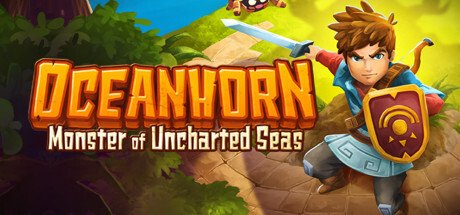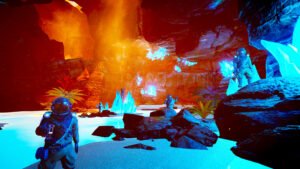Is imitation the sincerest form of flattery, or is it just what happens when you run out of ideas?
For every game that lies on the cutting edge of innovation, a bevy of imitators are spawned in its wake. The Legend of Zelda series seems especially prone to imitation, and for good reason— its influence has been far-reaching, helping to define every generation of action-adventure games in the past thirty years. The initial game brought the scale of NES games to a whole new level, A Link to the Past honed its structure to a fine edge, and Ocarina of Time became the mold that 3D action-adventures would follow for years to come. Perhaps less revolutionary, but still meaningful, was The Wind Waker, featuring a sprawling ocean that functioned as an open world long before open worlds became the style du jour.
This lengthy preface serves to highlight the position of Oceanhorn: Monster of Uncharted Seas, a Wind Waker-inspired action-adventure that is less of an homage and more of a Great Value-brand knock-off. I can appreciate a game that cribs from its predecessors, just so long as it builds upon its foundation in a meaningful way. But Oceanhorn has virtually no identity of its own. It’s a forgettable seafaring adventure that loses itself in small details.
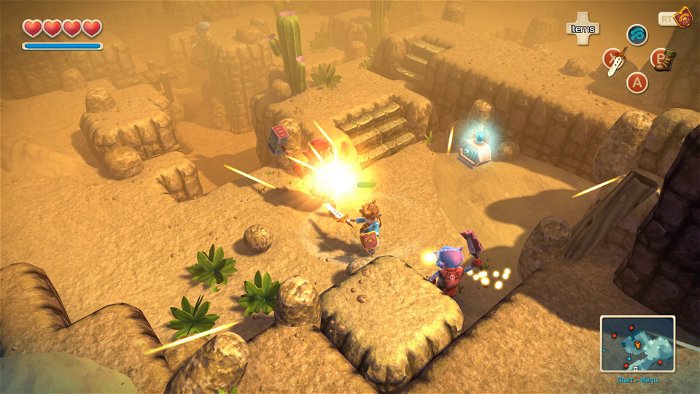
Oceanhorn first released on iOS back in November 2013, drawing attention for the fidelity of its visuals and the inclusion of a few music tracks from veteran Japanese composers Nobuo Uematsu (Final Fantasy) and Kenji Ito (SaGa series). This re-release for Playstation 4 and Xbox One brings the action to the big screen, with upscaled graphics and revamped gamepad controls. The trouble is, Oceanhorn was clearly developed as a mobile game, and nearly every facet of the experience makes that abundantly clear.
The game plays out in straightforward Zelda fashion. Our unnamed hero’s father departs on a stormy night to challenge an evil creature, the titular Oceanhorn, prompting the Hero to soon depart on his own journey. He travels across the vast ocean, exploring lost islands and element-themed temples using a suite of suspiciously familiar tools— all while running ludicrous errands for needy townsfolk. Mix in an ominous prophecy, an ancient civilization, and a late-emerging villain with little personality, and voila! That’s Oceanhorn’s plot in a nutshell.
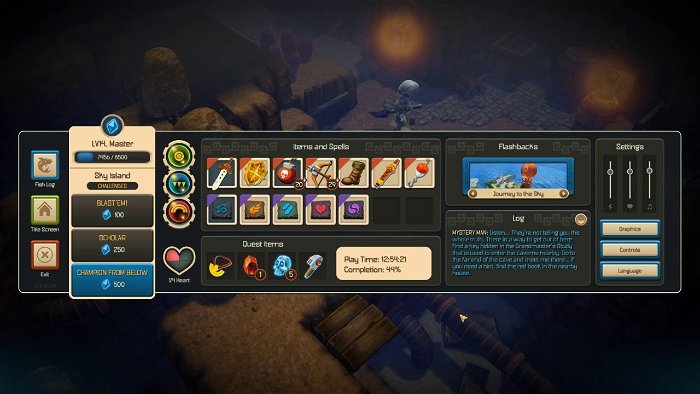
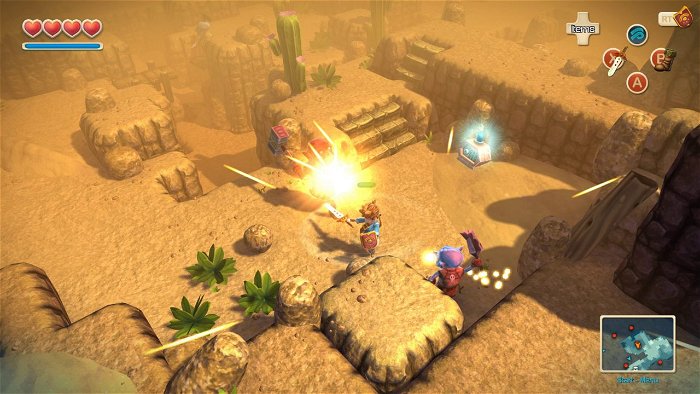
Oceanhorn: Monster of Uncharted Seas makes no attempt to hide its inspirations. A wise owl dispenses advice, bombs break cracked cave walls to reveal hidden paths, sliding-block puzzles bar the way to dungeon depths…and it doesn’t stop there. Pieces of Heart. Rock-spitting octopi. A mirror shield. Oceanhorn’s references would be amusing if they were not so blatant, so built on a mistaken premise that Zelda can be boiled down to a checklist of people, places, and things. What makes Zelda special is its meticulous polish and inimitable charisma. Oceanhorn lacks both. Its locales are uninspired, its puzzles banal. Animations are simplistic, but less in a “this is intentionally minimalistic” way and more in a “this could have used some more time in the oven” way. The game does make use of a bright and bold color palette that is beautiful on the big screen, but its art design is so uninspired that I can scarcely remember what any person or place looked like a mere week after beating it. The water effects were nice, at least…?
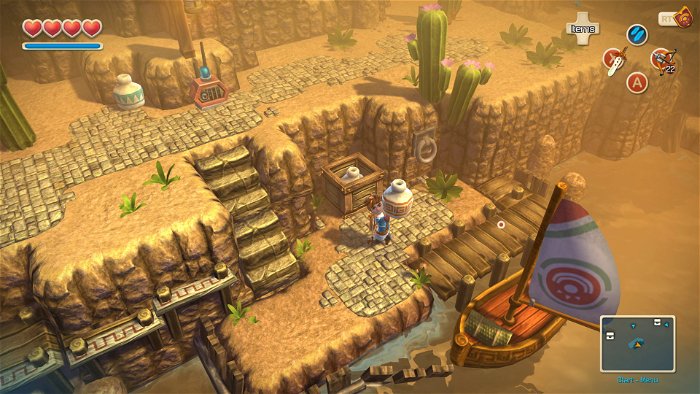
It’s odd that even Oceanhorn’s controls feel half-baked. Because it was originally designed to be played on a mobile device, remnants of its touch screen interface remain. The game’s single status menu is small and lacks detail, spells require unwieldy aiming via the control stick, and running feels slippery. Moving from island to island using the Hero’s boat could have been a highlight of the experience, but it’s fully automated, removing the joy of exploration entirely. It creates the illusion of depth where none is present, much like…well, every other aspect of the game.
It’s a shame that the game stumbles so much, because it’s easy to feel the developers’ love for Zelda and their desire to make something close to it. Yet Oceanhorn is ultimately a pale specter of The Wind Waker, easily skippable and lost in the sea (pun intended) of superior alternatives available.

